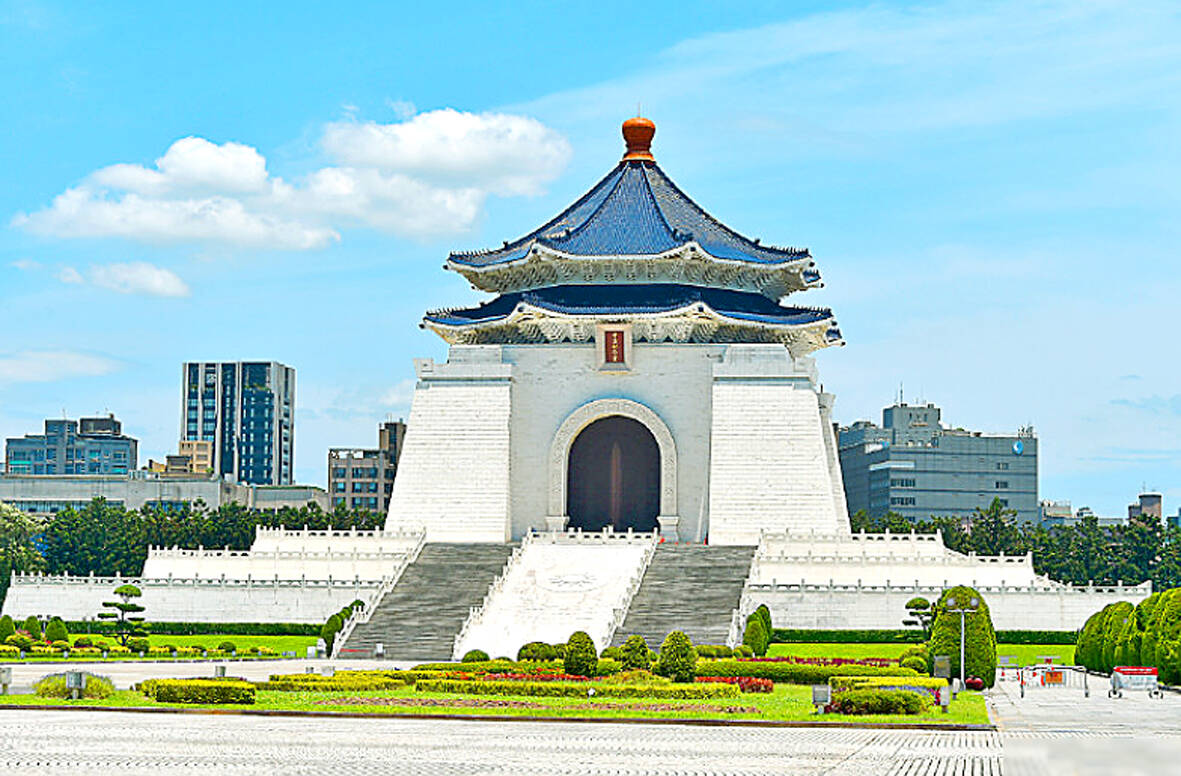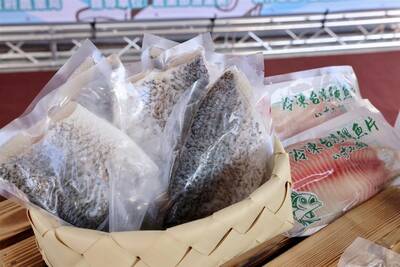Two of the 10 most searched for cultural landmarks on Google Maps by users around the world last year were in Taiwan, surpassing some prominent landmarks in France and South Korea, Google Taiwan said on Tuesday.
The Chiang Kai-shek Memorial Hall and Songshan Cultural and Creative Park ranked sixth and seventh on the list of Google Maps’ most searched cultural landmarks in the world last year, it said.
The top five most searched cultural spots on Google Maps were the UK’s Buckingham Palace and Big Ben, the Great Pyramid of Giza in Egypt, Christ the Redeemer in Brazil and Belgium’s Royal Palace of Brussels.

Photo: Tu Chien-jung, Taipei Times
Rounding out the top 10 after the two landmarks in Taiwan were France’s Louvre Pyramid and the Palais Ideal, and the Gyeongbokgung Palace in South Korea.
Ahead of the Lunar New Year holiday, which runs from today through Jan. 29, the company released a list of the most searched restaurants in Taiwan on Google Maps during last year’s Lunar New Year break.
Breakfast shops took the top spot from coffee shops, which finished third behind hot pot restaurants.
The Taichung High-Speed Rail Station and Taichung Railway Station were where Google Maps was used most during last year’s holiday, while the Zihnan Temple (紫南宮) in Nantou County was the most searched temple.
Google Flights data showed that Tokyo was the city most Taiwanese wanted to visit during this year’s break, it said.

Taiwan's Vice President Hsiao Bi-khim (蕭美琴) said Saturday that she would not be intimidated by the Chinese Communist Party (CCP), following reports that Chinese agents planned to ram her car during a visit to the Czech Republic last year. "I had a great visit to Prague & thank the Czech authorities for their hospitality & ensuring my safety," Hsiao said on social media platform X. "The CCP's unlawful activities will NOT intimidate me from voicing Taiwan's interests in the international community," she wrote. Hsiao visited the Czech Republic on March 18 last year as vice president-elect and met with Czech Senate leadership, including

There have been clear signs of Chinese Communist Party (CCP) attempts to interfere in the nationwide recall vote on July 26 in support of Chinese Nationalist Party (KMT) legislators facing recall, an unnamed government official said, warning about possible further actions. The CCP is actively involved in Taiwanese politics, and interference in the recall vote is to be expected, with multiple Chinese state media and TAO attempts to discredit the Democratic Progressive Party (DPP) and undermine public support of their recall movement, the official said. This interference includes a smear campaign initiated this month by a pro-Beijing Hong Kong news outlet against

A week-long exhibition on modern Tibetan history and the Dalai Lama’s global advocacy opened yesterday in Taipei, featuring quotes and artworks highlighting human rights and China’s ongoing repression of Tibetans, Hong Kongers and Uighurs. The exhibition, the first organized by the Human Rights Network for Tibet and Taiwan (HRNTT), is titled “From the Snowy Ridges to the Ocean of Wisdom.” “It would be impossible for Tibetans inside Tibet to hold an exhibition like this — we can do it. because we live in a free and democratic country,” HRNTT secretary-general Tashi Tsering said. Tashi Tsering, a Taiwan-based Tibetan who has never

A first shipment of five tons of Taiwan tilapia was sent from Tainan to Singapore on Wednesday, following an order valued at NT$600,000 (US$20,500) placed with a company in the city. The products, including frozen whole fish and pre- cooked fish belly, were dispatched from Jiangjun Fishing Harbor, where a new aquatic processing and logistics center is under construction. At the launch, Tainan Mayor Huang Wei-che (黃偉哲) called the move a “breakthrough,” marking Taiwan’s expansion into the Singaporean tilapia market. Taiwan’s tilapia exports have traditionally focused on the United States, Canada, and the Middle East, Huang said, adding that the new foothold in